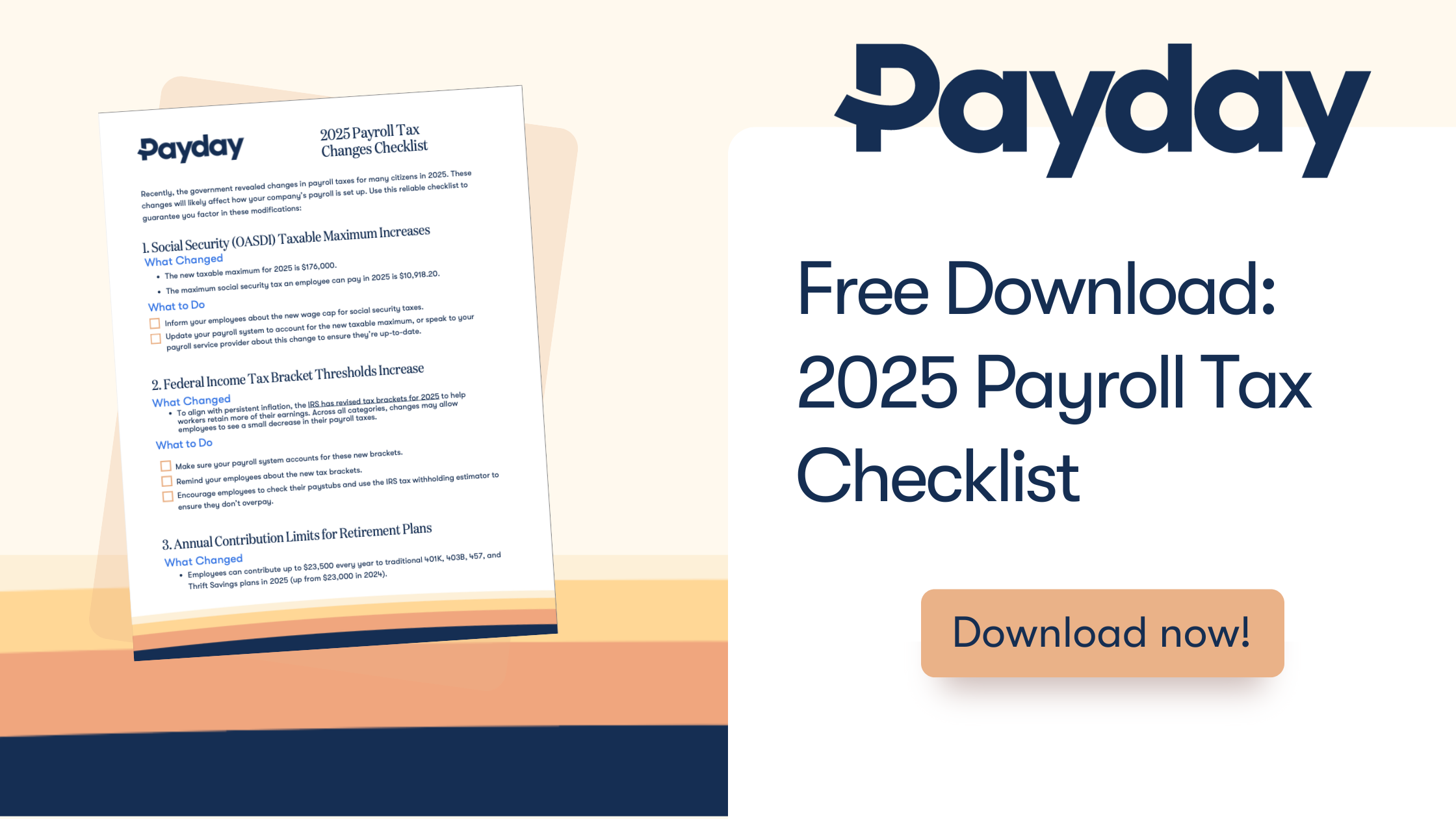End-of-year bonuses can significantly boost employee morale and retention. These bonuses acknowledge key employees’ contributions to the year’s success and differ from smaller holiday bonuses given more broadly. Typically awarded to executives, managers, and other high-performing employees, year-end bonuses show appreciation and help retain talent.
While bonuses are a valuable retention tool, they also bring specific payroll challenges. Timing, tax compliance, and budget planning are essential to consider. If you plan to issue year-end bonuses, follow these payroll best practices for a smooth, compliant process.
Key Considerations for End-of-Year Bonuses
Tax Implications
Year-end bonuses are considered “supplemental income” by the IRS, which requires different tax withholding than regular wages. Here’s how the process typically works:
- Federal Withholding: For bonuses paid on a separate check, a flat 22% withholding rate applies, while bonuses over $1 million require 37% withholding. Alternatively, bonuses can be combined with regular pay under the “aggregate method,” which calculates withholding based on the employee's regular W-4 form and tax bracket. This method may push the employee temporarily into a higher tax bracket for that period.
- State Income Tax: State income tax may also apply, depending on local regulations, regardless of the federal withholding method used.
Accurate withholding is essential, although employees should confirm their withholding preferences for accurate tax planning.
Budgeting and Financial Planning
Bonus amounts should align with the organization’s financial health, year-end payroll budget, and the employee's contributions. Review cash flows and budget projections for the upcoming year to confirm that your organization can meet bonus commitments without impacting cash flow needed for new year expenses.
Best Practices for Accurate Payroll Processing of Bonuses
Separate Bonuses from Regular Payroll
To prevent bottlenecks, calculate bonuses separately from regular payroll. Group checks containing bonuses together or process them in a separate payroll cycle. This keeps regular payroll running smoothly while handling bonus processing effectively.
Consider Timing of Bonus Payments
The timing of bonus payments impacts both tax filings and financial statements. Decide whether to issue bonuses before year-end or defer them to the new year. Deferring bonuses can be advantageous if taxable income is expected to be higher in the following year, allowing for potential tax benefits.
Ensure Accurate Withholding
Verify current IRS bonus withholding rates and any applicable state or local regulations, as these can vary. Accurate withholding prevents unexpected tax liabilities for both the employer and employee.
Communicate Clearly with Employees
Employees should be informed about the bonus timeline, payment amount, and withholding options. Receiving a bonus is exciting, but it can also impact personal finances. Clear communication allows employees to plan for potential tax impacts and make informed decisions on withholding preferences.
Common Mistakes to Avoid in Year-End Bonus Processing
- Miscalculating Taxes or Withholding: Ensure bonuses are reported on payroll tax forms, not 1099s. Misclassification can lead to confusion and tax consequences for employees.
- Not Following Legal Compliance: Bonuses may require additional state and local tax considerations. Avoid promising bonuses that do not align with employees’ expectations, as this can lead to legal or morale issues.
- Impact on Year-End Financial Statements: Significant bonus payouts can impact your organization’s financial appearance. While bonuses can be beneficial for reducing taxable income, ensure they’re accurately reflected in year-end statements to avoid misleading financials.
How Payday Can Simplify Year-End Bonus Processing
Payday helps you navigate year-end payroll challenges by ensuring bonuses are processed accurately and on time. Our payroll solutions manage both aggregate and flat-rate bonus calculations, so you can focus on the holiday season without tax concerns.
Schedule a consultation with Payday to ensure your year-end bonuses are handled seamlessly.


